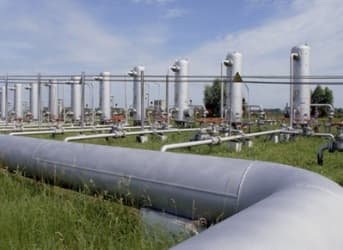Indian and Pakistani officials this week are debating issues related to a natural gas pipeline planned from Turkmenistan. Pakistan's energy minister left Monday for India to hold talks on the pipeline, which is the favorite of Washington. But Pakistan is running out of options to address energy shortages and explorers working on natural gas in Turkmenistan said the market wasn't ripe yet for major energy developments. Iran, meanwhile, says its section of a gas pipeline from the South Pars gas field is ready to go, and with Islamabad growing increasingly frustrated with Washington, it would be no surprise if an unsteady government in Pakistan decides to hop in bed with Washington's chief adversary, at least on energy issues.
Pakistani Energy Minister Asim Hussain left for New Delhi this week in an effort to settle issues related to transit fees for the Turkmenistan-Afghanistan-Pakistan-India natural gas pipeline. Various statements out of Islamabad, however, suggest the government isn’t sure if TAPI or the long-planned and dubiously named Peace Pipeline from Iran is the best option to address their energy concerns. Islamabad said liquefied natural gas is too expensive right now and security concerns in Afghanistan make TAPI a bit of a risk. Though New Delhi can't seem to make up its mind on the pipeline from Iran, the Pakistani government said it felt that project might be worth exploring.
But ask the U.S. government, which offers significant financial support for the Pakistani military, which is the better option. Washington opposes any deal that gives Iran any sort of perks, meaning if the White House has its way, nothing is getting out of Iranian oil and natural gas fields no matter how much reserve capacity is there. And yet Islamabad has said it's had just about enough of U.S. action in the region, lashing out early last year when CIA contractor Raymond Davis was freed from Pakistani custody by "blood money" and again when the much-feared SEAL Team Six killed Osama bin Laden at his Pakistani compound. So why shouldn't Pakistan get natural gas from Iran?
Iran has had its own problems with security in the region, however. Jundallah, a Sunni group accused by Tehran of having ties to Washington, has launched attacks in the southeast region and the Pakistani side of the border isn't exactly secure. Nevertheless, Iran maintains its part of the Peace Pipeline is completed and Pakistani authorities had said they were "pro-actively" pursuing all of their energy options. That includes options from Iran's part of the South Pars complex, one of the biggest natural gas fields in the world.
Turkmenistan has the deals in hand to move forward with the project but there are a lot of diplomatic and military dimensions to building a $7.6 billion natural gas pipeline through war-torn Afghanistan and conflict-prone Pakistan. Washington and the Asia Development bank have thrown their support behind TAPI, though with the U.S. military looking for the exit doors in Afghanistan and bilateral ties with Islamabad fracturing, Washington might not have the influence in Central Asia that it once had. Iran, let's face it, is good at the geopolitical game and unless Western allies can somehow convince Pakistan that Iranian gas won't help at all, the pipeline dreamed up during the 1990s may finally cross into Pakistan territory.
By. Daniel J. Graeber of Oilprice.com


















